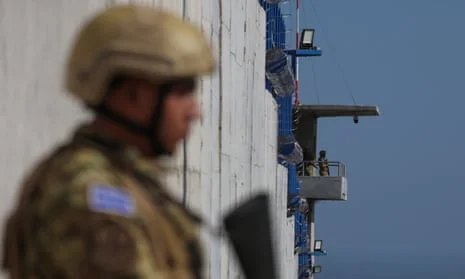
When Deportation Becomes Dystopia: Inside America’s Expanding Dragnet and the Threat to Due Process
In a troubling escalation of anti-immigrant policy enforcement, the United States is seeing a wave of deportations and detentions that critics warn have begun to trample constitutional rights, target political speech, and sow fear even among citizens. Over the past weeks, reports have multiplied of immigrants and visa holders—some with no criminal record—spirited away to foreign prisons or secretive detention centers, sometimes simply for expressing solidarity with Palestinians or criticizing the policies of the Israeli government.
The stakes have been pushed even higher by recent statements from Trump administration officials hinting at the possibility of deporting American citizens themselves—a prospect legal experts say is plainly unconstitutional, yet reflects a broader trend of executive overreach unconstrained by judicial oversight. In this tumult, everyday people and prominent academics alike have found themselves caught in a rapidly tightening net where traditional due process is nowhere to be found, and the meaning of citizenship itself seems under threat.
One of the most striking cases centers on Kilmar Abrego García, a Salvadoran sheet metal worker and father of a young autistic child, who had lived legally in the US for over a decade. Abrego García, according to multiple reports, was deported by mistake but now languishes in El Salvador’s notorious CECOT prison—a "mega-prison" overseen by President Nayib Bukele. Despite judicial orders demanding his return, the Trump administration has refused to act, with White House spokesperson Karoline Leavitt dismissively suggesting any complaints be directed to President Bukele, claiming a lack of US jurisdiction.
Officials have tried to justify such deportations with unsubstantiated allegations of gang ties or human trafficking, but observers have noted the irony of US authorities themselves orchestrating forced removals reminiscent of state-sanctioned abductions. The trauma does not end with the deportees. Their families are left in limbo, while legal scholars argue that basic constitutional guarantees are being systematically eroded.
Students and academics critical of Israel's war in Gaza have also been targeted. Rumeysa Ozturk, a Turkish doctoral student at Tufts, was seized by masked officers and her visa revoked after she co-authored a pro-Palestine op-ed; Mahmoud Khalil, a former Columbia graduate student and permanent resident, was abducted in front of his pregnant wife after protesting against the war. Several others—ranging from graduate students to medical professionals—have faced similar fates, often with little warning and scant opportunity for legal recourse.

The growing pattern has prompted outcry from civil liberties advocates and jurists. Citing a recent dissent, Supreme Court Justice Sonia Sotomayor warned of the "implications…that not only noncitizens but also United States citizens could be taken off the streets, forced onto planes, and confined to foreign prisons with no opportunity for redress if judicial review is denied unlawfully before removal." Yet with the Supreme Court hesitating to restrain the executive branch—even as lower courts issue orders for redress—the constitutional fabric seems at risk of unraveling.
The consequences will reverberate far beyond immigrant and activist communities. As due process protections are undermined, and the targets of indefinite detention or deportation expand, the boundaries of government power are redrawn in ways that threaten every American’s rights. Stan Mack’s piercing cartoon—a nightmare vision of citizens in peril—serves as a warning for these times: if these legal precedents stand, who might be next?
The question for the nation is urgent: Will public outrage, judicial intervention, or congressional action stem this growing disregard for constitutional norms? Readers, how do you weigh the balance between national security, free speech, and due process in this fraught climate? Share your perspectives in the comments below.
Related issues news
Can the US deport US citizens?
These individuals in removal proceedings include Americans by birth and legal immigrants that were naturalized under 8 U.S.C. u00a7 1427 or admitted as nationals of the United States under the Child Citizenship Act of 2000. A U.S. citizen cannot legally be deported, and thus can return to the United States at any time.
Who is the press secretary?
Press Secretary Karoline Leavitt Briefs Members of the Media, Apr. 11, 2025 u2013 The White House.